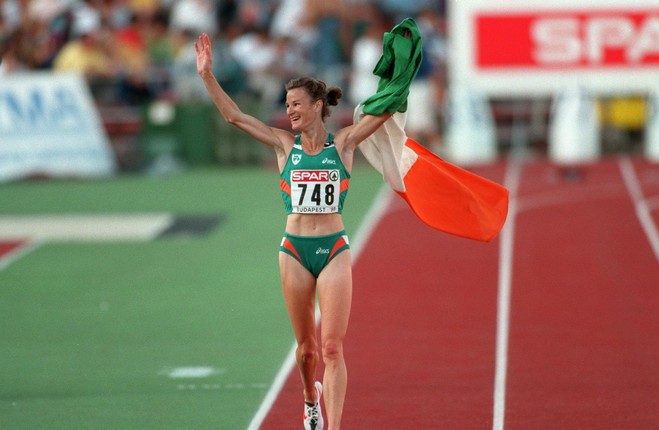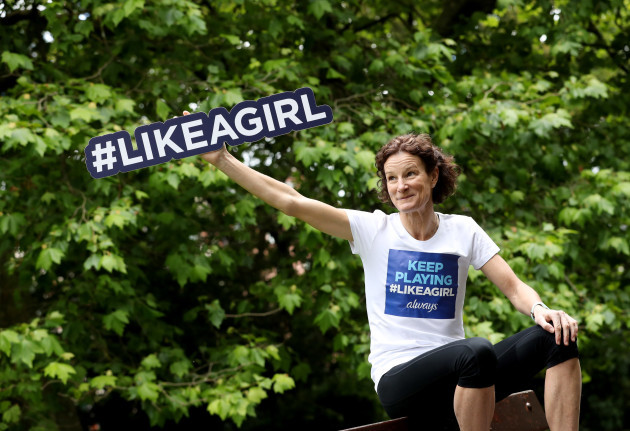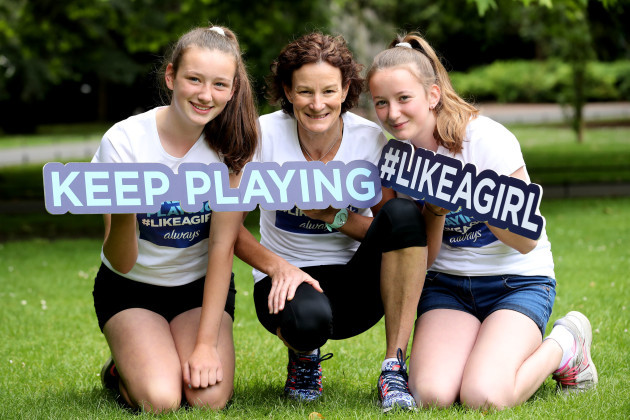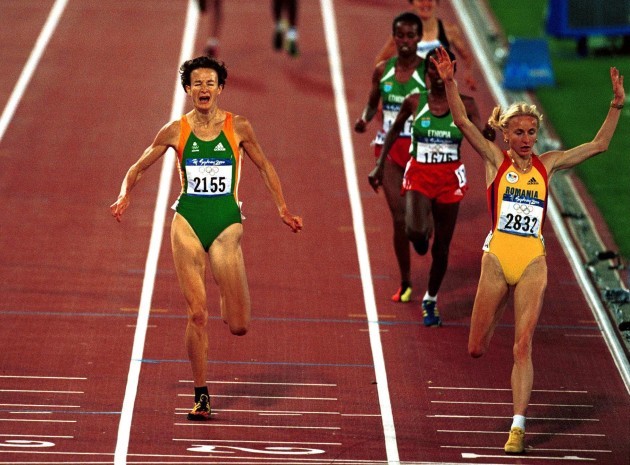WERE THE OLYMPIC Games not being held in Brazil this year, the Zika Virus might just occupy the ‘news in brief’ section of newspapers; a footnote on world affairs.
However, it has instead dominated both front and back pages over the past number of months, not least when Rory McIlroy, Shane Lowry and Jason Day all cited it as the reason they would not be competing at Rio 2016.
Reaction to their respective decisions was mixed to say the least, but one Irish Olympic silver medallist believes the virus may have been a “convenient excuse” for athletes for whom the Olympic Games means very little.
“Because I’m still involved with the Olympic Council of Ireland, I work closely with them so I’ve seen everything that has come out and been shown to the athletes and I think if it was something to be worried about then the Olympics wouldn’t be held there,” O’Sullivan told The42 yesterday.
“It is around, there is a risk but, at the same time, it’s once every four years and if it means that an athlete has to take precautions and follow the different guidelines for six months after the Games then I think many of them would be willing to do that.
“I think for many athletes, the Olympic Games is the most important thing and, if they’re at the peak of their careers, they’re not going to give up the chance to take part in that.
“For the golfers, I think it might just have been a convenient excuse, especially with them using it one after another.”
However, O’Sullivan also has some sympathy for the golfers and believes one in particular might view the Games very differently than the others.
“In a sense, the Olympics was thrown on the golfers this year and it’s not something they’ve grown up with, it’s not something they’ve wanted to do but, all of a sudden, they’re expected to say an Olympic gold in golf is really important but it’s not.
I think it’s different with Pádraig Harrington because he was so integral in getting golf into the Olympics and it would be really special if he was to win a medal and I think it would mean a lot to him.
“But there’s no point in forcing someone to be there if they don’t want to be there and, who knows, in a couple of Olympics, there’s every chance that Rory would want to be there so there’s no point in closing the door.”
Another big talking point ahead of the 2016 games has been the issue of sex and athletics’ struggles to get past its binary system of male and female competitors. Basic human biology isn’t quite as simple as XX or XY and drawing the line between men and women can be quite arbitrary.
With Caster Semenya shattering her 1500m personal best to take gold at the African Championships in Durban late last month, the issue of intersex athletes is very much to the fore again.
Semenya first broke onto the scene in 2009 but her 800m win at that year’s World Championships was overshadowed by insinuations about her gender.
The South African disappointed at London 2012 though she was beaten into silver by Russia’s Mariya Savinova who has since been accused of doping by a World Anti-Doping Agency (WADA) report.
This year, Semenya is running faster than ever and while Sonia O’Sullivan is not suggesting that she’s doing anything other than using her natural advantage, the World and European gold medallist believes that classifications may have to change in the future.
“(Female intersex athletes) are going to pose a challenge for athletics going forward with women who are built a lot stronger and, genetically, not your typical woman,” she said.
“So they do have advantages and, I suppose, it is an area where you have to ask how do you deal with that?
I mean, if you grow up as a woman and you earn the right to compete in the Olympics and somebody tells you you’re not a woman, then it’s quite a sensitive area to deal with but, to maintain the level playing field there needs to be regulation for it like there has been in the past.
“I suppose people talk a lot more about these things now and athletes want to stand up for themselves and say ‘why can’t I compete?’
“(Caster Semenya) has definitely taken advantage of the rule changes this year. She’s been given this chance to compete and she’s probably thinking ‘I might as well take the money and run’ — and gold medals as well — but I do think in the future they will go back to some kind of controls again.”
And, for O’Sullivan, the solution might be found in the competition taking place in Rio directly following the Olympics.
“It has to be measured nearly like the Paralympics where the athletes are placed in categories based on their ability or disability and I think you probably have to do that with intersex athletes too in as sensitive a way as possible.
“From the time I was a young age, racing at the Olympics, we were subject to sex tests and it was accepted back then as part of racing.”
The Cork star was speaking at the launch of the 2016 #LikeAGirl campaign aimed to get more women and girls to stick with sport with as many as 64% of them dropping out of all sports once they finish puberty.
It’s something O’Sullivan is passionate about.
“I think (the campaign) is aimed at an age group where it’s cool to be a girl so let’s play sport as we are and why change who we are just because we want to play sport?
“It’s a strong message for young girls, to tell them to be confident.
“‘What are you doing?’ ‘Oh, I’m doing it like a girl’ and for that to mean strongly and positively (rather than the traditional meaning) is a great thing.
“The videos have this fantastic visual impact and I think you see, especially in the young girls, exactly what they’re thinking about and that they believe they’re as good as the boys and they want to be treated as equal and given the same opportunities.
“When I was younger, I always saw it as just running. You didn’t compare yourself too much to the boys. I think athletics is one of those sports where it’s treated fairly equally all through the ranks and they’re inter-mixed with the World Championships, etc, all taking place at the same track at the same time so you get equal coverage and the same people in the stands watching.
By doing that you get to appreciate women’s sport as equally as men’s. I would never really compare the speed of women and men because it’s just not comparable so why even try?”
Long since retired from athletics, O’Sullivan will still keep a close eye on Rio though she admits that questioning how clean the performances are is part and parcel of watching the sport.
“It’s more difficult to have a connection with athletes certainly. There are obviously some I keep a close eye on because I’ve watched them from a young age or I know their coaches or managers or athletes from Ireland that you’d have a personal connection with.
“Then, of course, I look at the middle distance races as they’d have the most interest to me and there are definitely some performances you watch and you wonder and, when you see all these revelations of athletes cheating, you just hope they are going to clamp down on the cheats.
“It amazes me that people continue to cheat. I just can’t get my head around it. It’s easier to get caught now and people are still cheating but you do tend to see more athletes maybe not performing as well as you’d expect or not turning up and maybe it’s because they have these worries and fears about being caught?”




